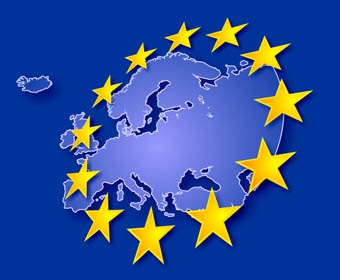Telefónica’s Big Data Director Richard Benjamins has urged the European Union to unify the continent’s telecoms market and level the playing field between operators and OTT players. He said unless action to create more transparent and fairer market is taken soon, Europe will lose its chance to be at the forefront of Big Data.
October 15, 2014

Telefónica’s Big Data Director Richard Benjamins has urged the European Union to unify the continent’s telecoms market and level the playing field between operators and OTT players. He said unless action to create more transparent and fairer market is taken soon, Europe will lose its chance to be at the forefront of Big Data.
Telefónica has set Big Data firmly within its strategy. “For us [Telefónica] it is no doubt that this is something very important. More and more things are digital, so data is really at the heart of what needs to happen,” Benjamins told Telecoms.com ahead of Telefónica’s Data: the New Currency summit, held in Brussels today.
“This event is very important to give a message to the audience and also to the European parliament. There are some issues that need to be solved and they have to be solved in the right way, otherwise everything will again happen elsewhere than in Europe.”
Benjamins said standardisation of the industry across the continent would help in creating a more transparent and equal market. According to him, telcos and OTTs differing treatment causes confusion to consumers. “They have certain rules for one kind of a service from one player, but a different rule for the same service from another player. It’s not clear for consumers, on the other hand is not clear for businesses either.”
Ahead of the inauguration of the new European Commission next month, Benjamins said having the same rules to apply to all players will also ensure better security and privacy to consumers. “We all agree that data is the lifeblood of digital technologies. It is therefore vital that the reform of the legal framework for data protection results in a trusted digital environment.”
“Policy makers should take a risk-based approach which considers not only how data is collected but also how it is used. They should aim to protect people first, rather than data, and must prevent the use of data in ways that might negatively impact individual people’s lives.”
“I am a digital and data optimist. The internet lets us share and combine in exciting new ways,” Neelie Kroes, VP of the European Commission said. “The rise of Big Data gives us the chance to see patterns and solve problems that were previously unsolvable. While data controllers should not have a blank cheque, we can’t overlook the opportunities. Our shared responsibility is to ensure internet users get education and clear information and rights to make the most of this new data environment.”
Telefonica has also published the results from its second annual Global Millennial Survey, which surveyed some 6,700 people from 18 countries and aims to highlight the 18-30 year-old ‘millennial’ generation’s views on technology. According to the results, 80% of respondents feel in control of their personal online data. However, eight out of 10 said they are worried about hacking and someone stealing their personal data, while 90% claim to take active steps to protect themselves.
Benjamins admitted privacy and security remain the top issues in Big Data, but he said end-users are the key in solving the issue. “What we have found out [from talking to people] is that depending on how we ask the question, people say they’re concerned or they’re not so concerned about privacy,” he said.
“But when we looked into it we found that what what people are really interested in, is great services that offer them utility and many of those services are actually based on personal data. I think the solution [to privacy and security concerns] is to allow customers to make the decision of which of their data is used themselves. They could for example release certain data in exchange to something. “
About the Author(s)
You May Also Like








.png?width=300&auto=webp&quality=80&disable=upscale)


_1.jpg?width=300&auto=webp&quality=80&disable=upscale)


.png?width=800&auto=webp&quality=80&disable=upscale)